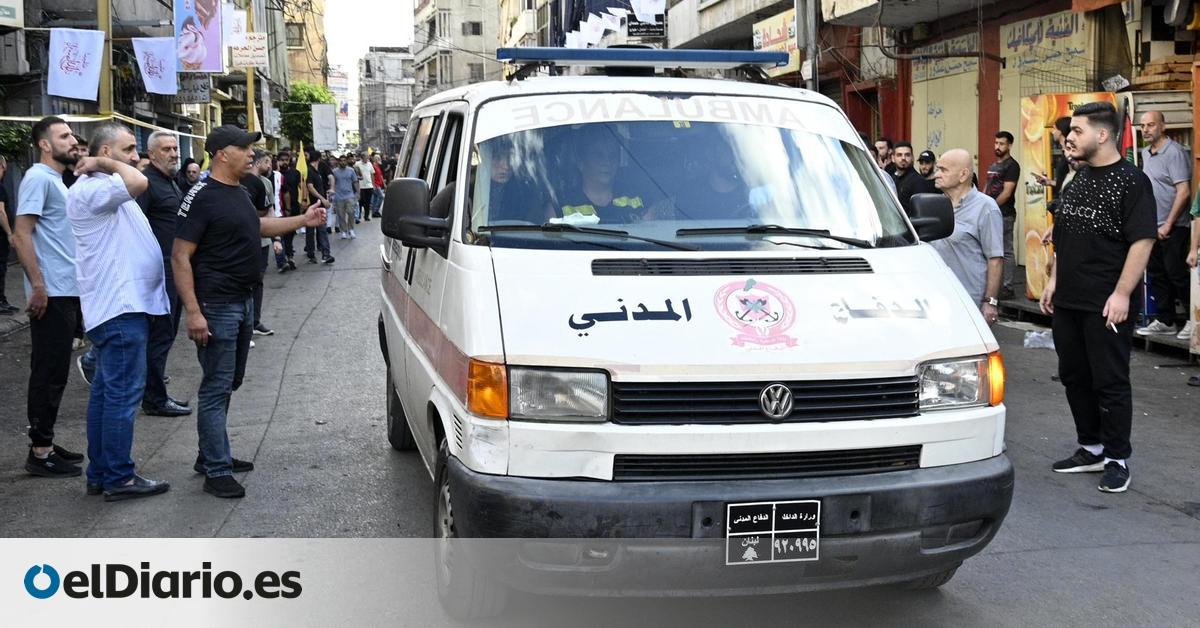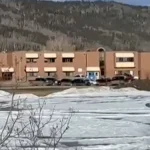
Lebanon has been hit by a new wave of explosions on Wednesday that appear to have targeted walkie-talkies used by Hezbollah militants. Lebanon’s health ministry reported that 14 people were killed and more than 450 injured. The explosions caused several fires in houses, shops and cars in several cities across the country, according to the Lebanese Civil Defense rescue organization.
The new wave of explosions comes just one day after the first coordinated attack against thousands of Hezbollah members by detonating their search engines, which appear to have been manipulated before their arrival in Lebanon. Tuesday’s explosions left 12 dead – including two minors – and almost 3,000 wounded.
Israel, as it usually does with such actions, has not claimed responsibility for the operation, but all eyes are on Tel Aviv.
Explosions occurred in several Beirut suburbs on Wednesday, as well as in the southern cities of Nabatiye, Tyre and Sidon. The Red Cross said more than 30 ambulances had been deployed to respond to “multiple explosions” in the south and east, while 50 more ambulances had been put on standby to support rescue and evacuation operations. At least one of the explosions appears to have occurred during a funeral organised by the Lebanese militia for those killed on Tuesday.
The Lebanese Civil Defence said in a statement that its teams were involved in extinguishing fires that broke out in dozens of buildings and vehicles. In the southern province of Nabatiye alone, 60 houses and businesses, as well as 15 cars and dozens of motorcycles were burned down due to explosions of “wireless devices and fingerprint readers”, according to its count.
The devices that exploded on Wednesday were handheld radios, Reuters reported, citing a security source. The outlet examined images of the exploding walkie-talkies, which were labeled “made in Japan” and “ICOM,” a Japanese-based radio and telephone company, according to its website. The company said production of several models of the handheld radio had been halted, including the IC-V82, which appears to match those in the images from Lebanon and was phased out in 2014, the news agency reported.
On Wednesday, various media outlets had revealed that Israel had placed explosives in thousands of planes imported by Hezbollah months before the unusual attack carried out on Tuesday in Lebanon.
Lebanese security sources quoted by the newspaper Times of Israel They say that the Lebanese militia bought the devices that detonated on Wednesday five months ago, at the same time as the pagers that exploded the previous day.
Hezbollah Executive Council leader Hashem Sadfieddine has vowed a “unique punishment” and “bloody revenge.” The organization’s leader, Hassan Nasrallah, is expected to testify on Thursday about the recent attacks. “We will be in a new situation and a new confrontation with this enemy,” Sadfieddine said.
The international community is holding its breath amid fears of an escalation. Israel has already been engaged in an intense exchange of fire with Hezbollah since the Hamas attacks on October 7.
UN Secretary-General António Guterres, through his spokesman, says he is “deeply alarmed” by what has happened over the past two days and has called on “all actors involved to act with maximum restraint to avoid a new escalation.” Guterres urges the parties to “immediately return to a cessation of hostilities to restore stability,” according to his spokesman, Stéphane Dujarric.
Source: www.eldiario.es

